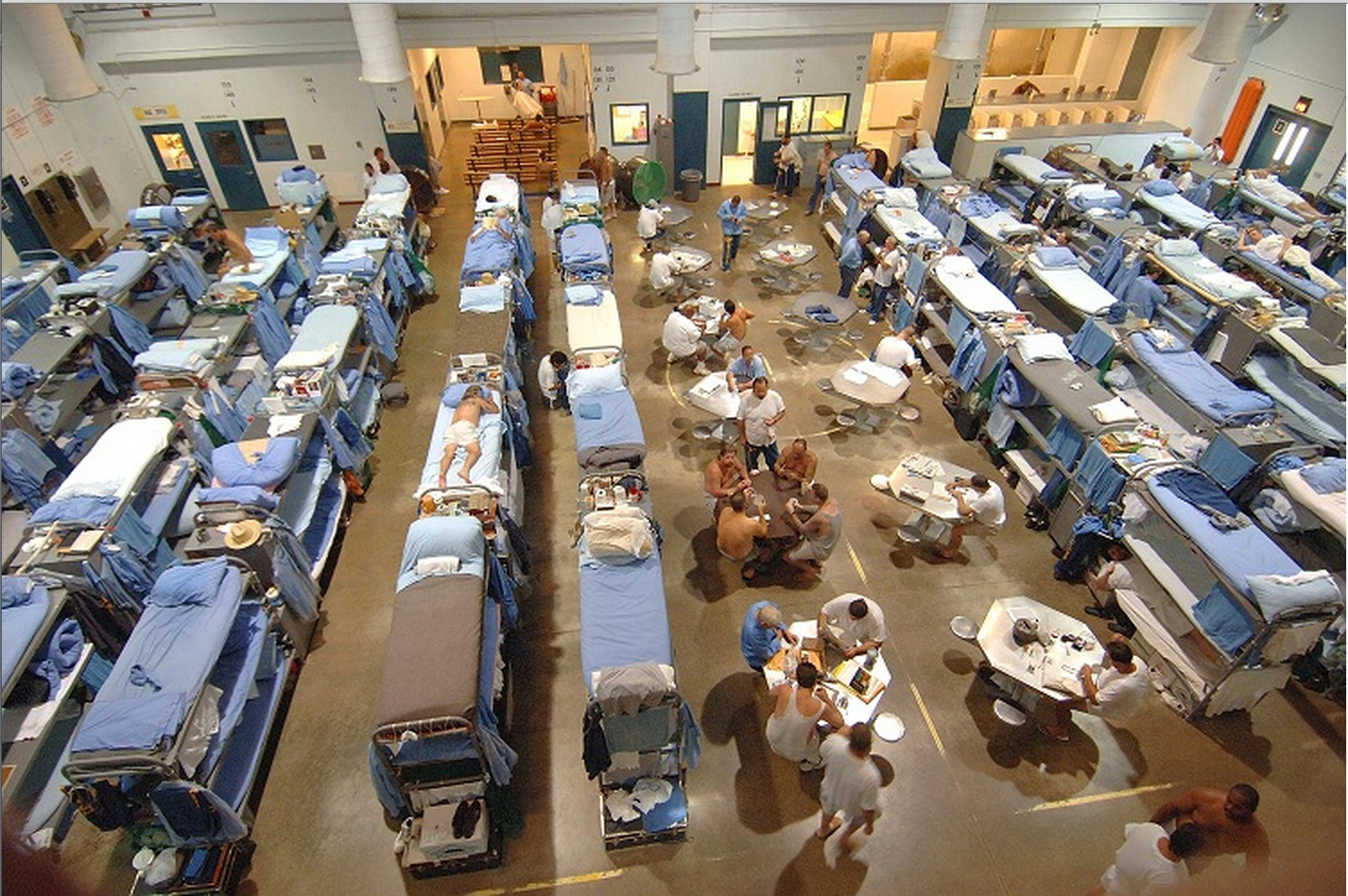Today begins our new month-long social justice series called From Punishment to Public Health. In this series we will explore how public health might offer a more humane and just approach to social ills than the current approach that is based on criminalization.

Is this the best response to social ills?
Source: http://en.wikipedia.org/wiki/Prison, Creative Commons Attribution
Since at least the 1970s, the response to drug use has been one that emphasized punishment and criminalization. The punishment framework has shaped the collective response to drug use for the past thirty years, in the US and globally. Catch phrases like “lock ‘em up and throw away the key,” “three strikes and you’re out,” and “let them rot in jail,” have characterized this time period and this attitude toward drug use.
More recently, the reliance on criminalization has been giving way to an approach that is more rooted in a public health. For example, in 2013, US Attorney General proposed moving away from mandatory minimum sentences for drugs. And, as the Patient Protection and Affordable Care Act (ACA) – colloquially known as “Obamacare” – goes into effect, an estimated 32 million Americans will have new access to drug treatment programs. Outside the US, other countries are moving to legalize drugs (such as Portugal, Uruguay) and closing prisons due to lack of inmates (such as the Netherlands).
How are these policy changes transforming the lives of everyday people? Are public health approaches to the criminalization of drugs really better or do they simply expand control over citizens? Through a variety of knowledge streams (e.g., podcasts, data visualizations, and blog posts) we will host a month-long conversation between academics, activists and journalists about the shift from punishment to public health and if that moves us closer to a more just society. As we did with the stop-and-frisk series, at the close of this series we’ll pull all these resources together in an all-in-one guide that you can download for your own use.
In the coming weeks, we’ll also curate a mix of academics, activists, and journalists talking about how to address this complicated social justice issue. To open this series, we will feature the following:
- blog post tomorrow from Ernie Drucker, PhD (John Jay College-CUNY and Columbia-Mailman), author of A Plague of Prisons, who leads an initiative called Punishment to Public Health (P2PH) from which we take the name of this series.
- a podcast interview on criminalization and public health with Alondra Nelson, PhD (Columbia University), author of Body and Soul: The Black Panther Party and The Fight Against Medical Discrimination.
- Wilneida Negron, a member of the JustPublics@365 Team, will introduce a data visualization for promoting change and we will engage leading academics on the shift from punishment to public health.
- Sandeep Junnarkar (CUNY J-School), will write about his Knight Foundation-funded project Family Life Behind Bars. A hybrid of journalism, research and activism, Family Life Behind Bars, explores the impact on family relations and dynamics when one or more member of a family is incarcerated.
The aim of JustPublics@365 is to foster just the innovative work that can foster connections between academics, activists and journalists who are working to address some of the pressing social problems of our time. From where we sit in the heart of New York City, criminalization is at the top of the list of pressing social problems because of the deleterious effects it has on the democratic life of the city and the nation.
So, we offer this series on Punishment to Public Health as another case study of how we might reimagine scholarly communication for the public good.
***
Click here for more information about our Monthly Social Justice Topic Series.


